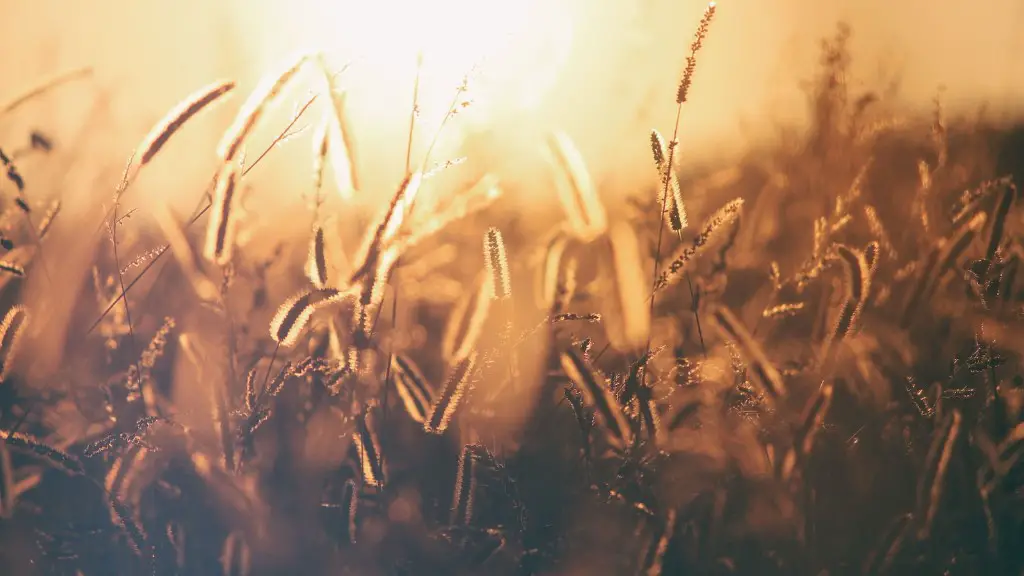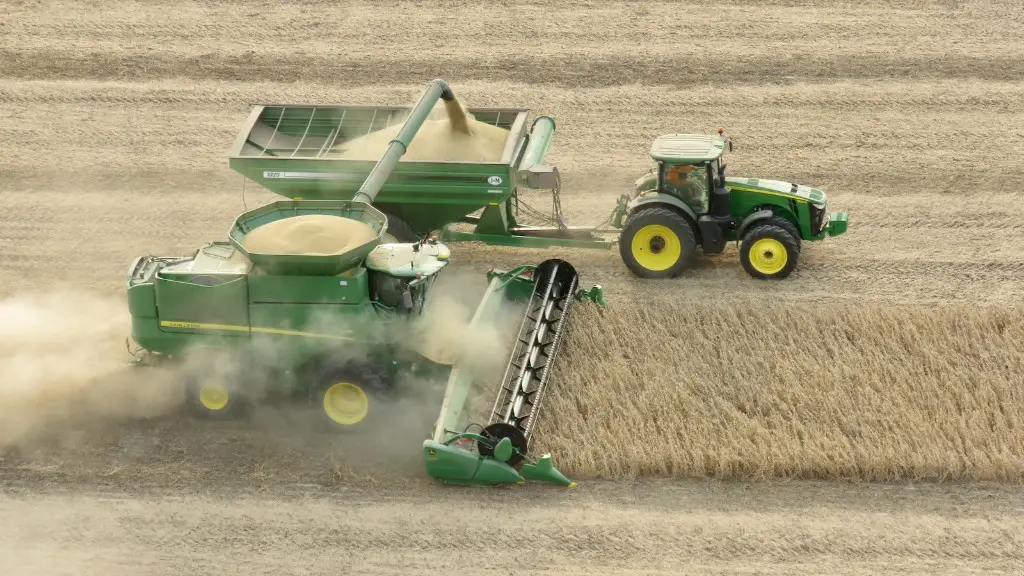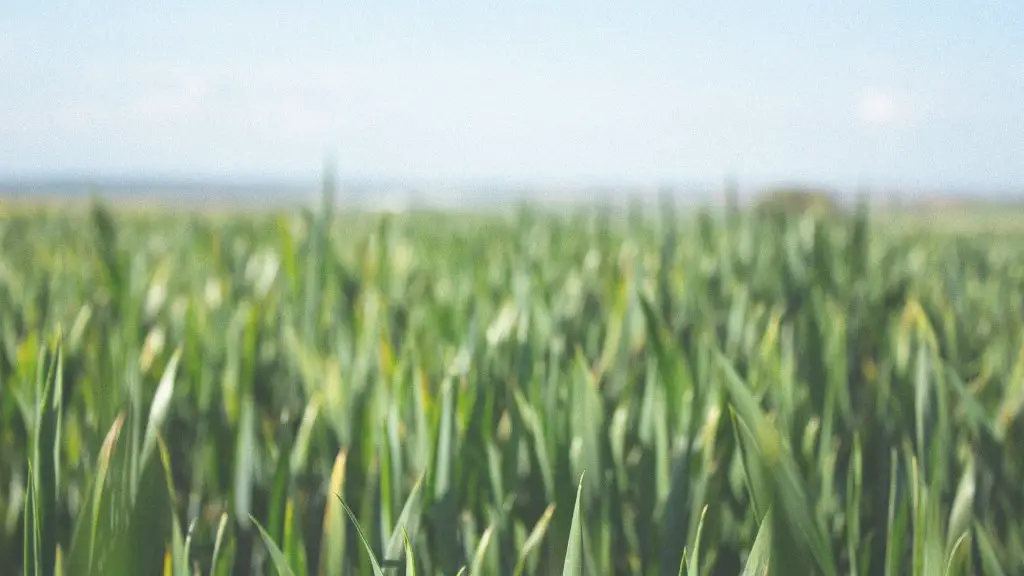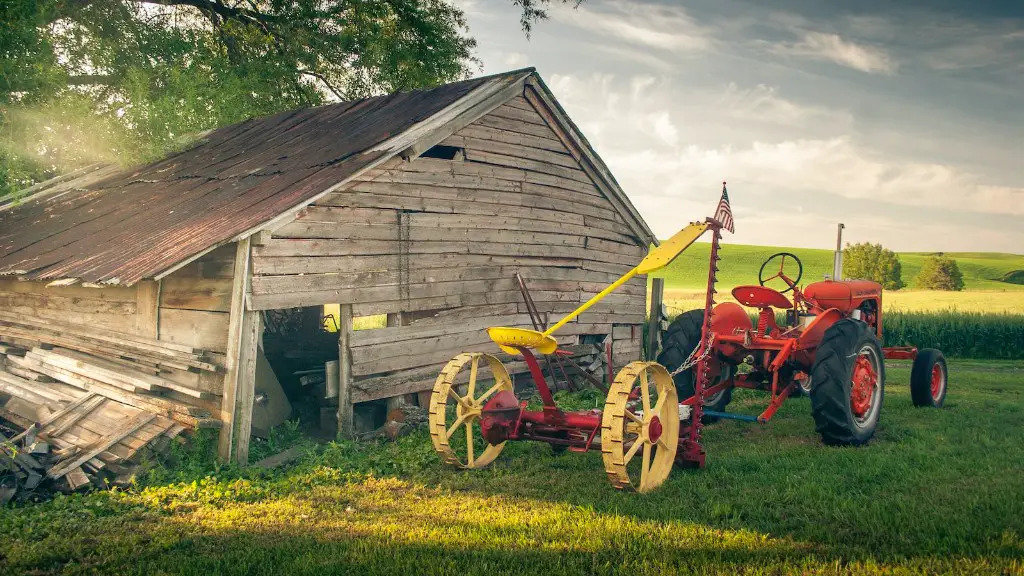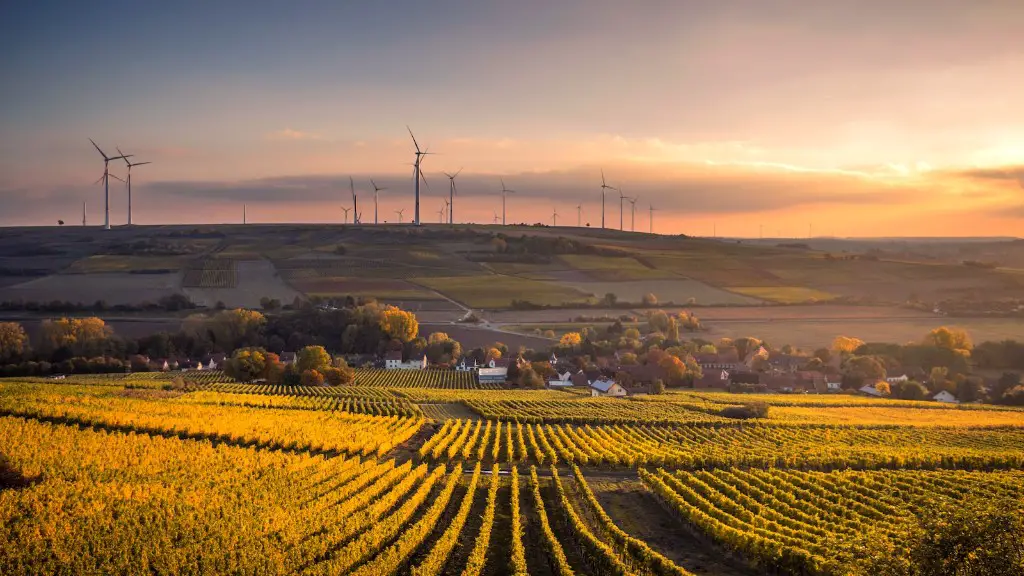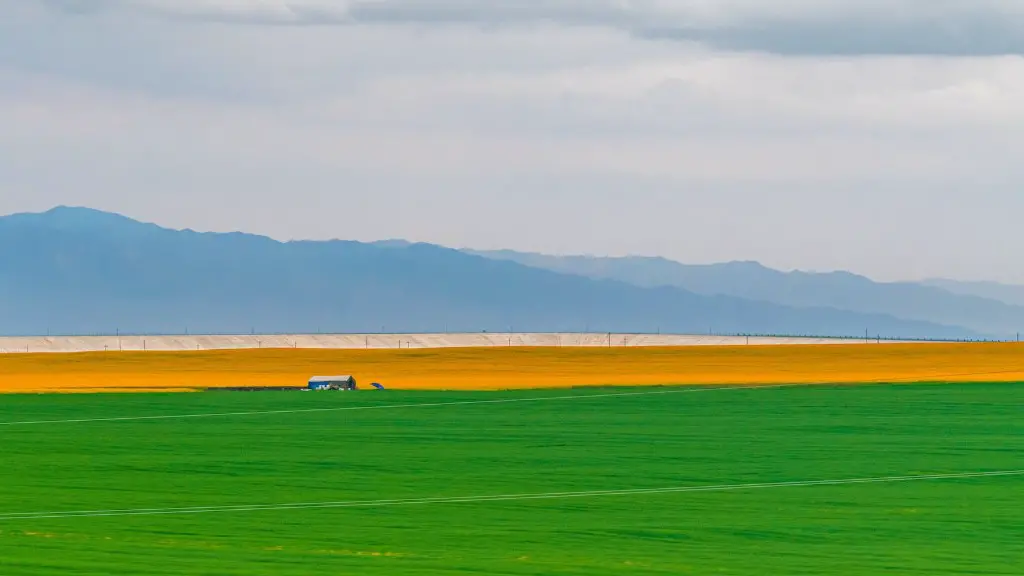It is no secret that water is essential for agriculture. Unfortunately, in many regions, water is a limited resource. This is why it is important to improve water use efficiency in agriculture. There are a number of ways to do this, including using irrigation systems, planting drought-resistant crops, and using mulch.
Improving water use efficiency in agriculture is important for a number of reasons. First, it can help to conserve water. This is important in areas where water is a limited resource. Second, it can help to improve crop yields. This is because crops will have access to the moisture they need to grow. Finally, it can help to reduce the cost of agriculture. This is because efficient water use can help to reduce the amount of water that needs to be pumped, which can save money.
There are a number of ways to improve water use efficiency in agriculture. One way is to practice conservation tillage, which helps to reduce evaporation and keep water in the soil. Another way to improve water use efficiency is to use irrigation systems that are designed to minimize water loss.
How can agriculture improve water efficiency?
There are many ways that farmers can conserve water and still produce high yields. One way is by making improvements to their irrigation systems. By using more efficient irrigation methods, farmers can reduce the amount of water used for irrigation. Another way to conserve water is by using cover crops. Cover crops help improve the health of soils by keeping the soil covered and reducing water lost to evaporation. Finally, farmers can use residue and tillage management techniques to reduce the amount of water used for irrigation. By using these methods, farmers can do more with less water.
We can be more water efficient by doing little things like turning off the tap while we brush our teeth or shave. We can also take shorter showers. If we thaw frozen foods in the fridge or microwave instead of under the tap, that will save water too. Washing vegetables or rinsing dishes in a plugged sink instead of letting the water run the whole time is another way to be more water efficient.
What is agricultural water use efficiency
When we talk about water being used efficiently, we mean that it is being used in a way that maximizes its potential. This includes using it to produce crops, recharge groundwater, and help meet the needs of a community. By using water efficiently, we can help ensure that everyone has access to this vital resource.
There are many ways to reduce irrigated acreage. One way is to leave some ground idle, and apply the saved water to high- value crops. Another way is to use conservation tillage practices such as minimum tillage, no till, and strip till. These practices help conserve soil water. Tillage is reduced and crop residue from the previous crop is at least partially retained on the soil surface.
How can we reduce water wastage in agriculture?
1. Drip irrigation systems deliver water directly to a plant’s roots, reducing the evaporation that happens with spray watering systems.
2. Capturing and storing water for irrigation can help farmers save water.
3. Scheduling irrigation around dry periods can help reduce water use.
4. Drought-tolerant crops can be a great way to reduce water use on the farm.
5. Dry farming techniques can help farmers save water.
6. Rotational grazing can help reduce water use on the farm.
7. Compost and mulch can help reduce water evaporation from the soil.
8. Cover crops can help reduce water evaporation from the soil.
9. Planting trees can help reduce water use on the farm.
10. Using greywater on the farm can help reduce water use.
Water is a precious resource, especially on a farm. Here are five cheap and effective ways to save water on your farm:
1. Mulch: This helps to reduce evaporation and keeps the soil moist.
2. Irrigate early morning or dusk: This helps to reduce evaporation and ensures the water goes where you want it.
3. Avoid hit and miss watering: Watering in areas where there are no plants is a waste of water.
4. Don’t over-water: This can lead to runoff and waste.
5. Check for leaks and damage: This can help you avoid wasting water.
What are 5 actions we can do to improve water quality?
Here are some simple things you can do to improve water quality in your home:
1. Flush run cold water taps for two minutes before using water for drinking and cooking. This will help to remove any lead that may be in the water.
2. Use cold water for drinking and cooking instead of hot tap water. Hot water can dissolve lead more quickly.
3. Use water filters and routinely replace filter cartridges. This will help to remove any contaminants from the water.
4. Install faucet aerators. This will help to reduce the amount of lead that can dissolve in the water.
5. Do not use hot tap water to flush toilets. This can cause lead to leach into the water.
6. Routinely test your water for lead and other contaminants. This will help you to identify any problems with the water quality in your home.
Water efficiency is important because it helps conserve water resources. When water is used efficiently, it reduces the strain on water supplies and can help save money.Water efficiency is also important for environmental reasons. Using less water can help reduce the amount of water pollution and the amount of energy required to treat and transport water.
Which method has highest water use efficiency
Drip irrigation is a type of irrigation that is characterized by a slow, steady application of water to the soils. This method is often used in arid or semi-arid climates, where traditional irrigation methods are less effective. Drip irrigation has a number of advantages over other irrigation methods, including higher irrigation efficiency, lower water usage, and reduced soil erosion.
farmers can help reduce water usage in agriculture by planting drought-resistant crops and using organic fertilizers and mulch. These practices will help to reduce evaporation and retain moisture in the soil. By reducing water usage, farmers can help conserve this important natural resource.
What are 5 methods of water conservation?
Water conservation is one of the simplest and most effective ways to combat the water shortage crisis. By making simple changes in your daily habits, you can help to preserve this vital resource. Check your toilet for leaks, and if you find any, have them repaired as soon as possible. Stop using your toilet as an ashtray or wastebasket, and put a plastic bottle in your toilet tank to reduce the amount of water used with each flush. Take shorter showers, and install water-saving shower heads or flow restrictors to further reduce your water usage. When taking baths, fill the tub only halfway to conserve water. These simple changes can make a big difference in the overall amount of water used each day.
While there are many ways that urban areas can help reduce pollution in local water bodies, some of the most effective measures include:
– Use of fertilizers and pesticides in a more judicious and selective manner
– Implementation of landscaping practices that help prevent soil erosion
– Washing vehicles only in designated areas, and using eco-friendly cleaners and products
– Disposing of pet waste in a responsible and safe manner
– Safe and proper storage and use of household chemicals
– Proper planning and design of roads to minimize runoff and pollution
How can we improve water supply to the community
Water access can be improved with the addition of centralized water distribution systems within each community. The construction and/or rehabilitation and funding for these new water systems can often effectively be done through a Public-Private Partnership (PPP). A PPP involves cooperation between the government and the private sector to finance, design, construct, operate and/or maintain infrastructure projects. This type of arrangement can provide many benefits to communities, including improved water access, shorter project timeline and improved quality control.
There are many ways to conserve water and some simple tips can go a long way! Here are a few ideas to get you started:
-Never use your toilet as a waste basket. This can wasted a lot of water each day.
-Do not let the water run while shaving or brushing teeth. You can save water by turning the water off while you lather up.
-Take short showers instead of tub baths. This can conserve a significant amount of water each day.
-If you must use a tub, close the drain before turning on the water and fill the tub only half full. This way you will use less water overall.
What are the most water efficient crops?
If you want to grow vegetables that don’t require a lot of water, you should try growing cool-season legumes and crucifer crops. Some examples of cool-season legumes include peas, lentils, and fava beans. examples of crucifer crops include Brussels sprouts, cabbage, cauliflower, collards, kale, kohlrabi, mustard, broccoli, turnips, and watercress.
Water efficiency is important to focus on in order to make the use of water sustainable. Reducing unnecessary water consumption is one way to do this, but it is also important to find responsible solutions for the use and supply of water. This will help to ensure that water is available for future generations.
What are water efficiency measures
What is the purpose of a water efficiency measure?
Water efficiency measures help you to use water economically, without compromising your quality of life. They also help to reduce your water and wastewater bills, and may delay the need for more expensive water and sewerage infrastructure.
It is important to note that the temperature threshold referred to in this context is different from the optimal temperature for photosynthesis. The optimal temperature for photosynthesis is the temperature at which the rate of photosynthesis is highest, while the temperature threshold is the point at which further increases in temperature begin to have a negative impact on water-use efficiency. Different plant species have different temperature thresholds, so it is important to take this into account when considering how temperature affects water-use efficiency.
Warp Up
There are many ways to improve water use efficiency in agriculture. Some farmers are using drip irrigation, which is an irrigation system that delivers water directly to the roots of plants. This method can reduce water usage by up to 50 percent. Other farmers are using no-till or low-till methods, which help reduce evaporation and runoff.
There are a number of ways to improve water use efficiency in agriculture. One way is to use irrigation systems that deliver water directly to the roots of plants, using less water overall. Another way is to use mulch to reduce evaporation from the soil. Planting cover crops can also help, as they help to keep the soil moist and reduce water loss.
